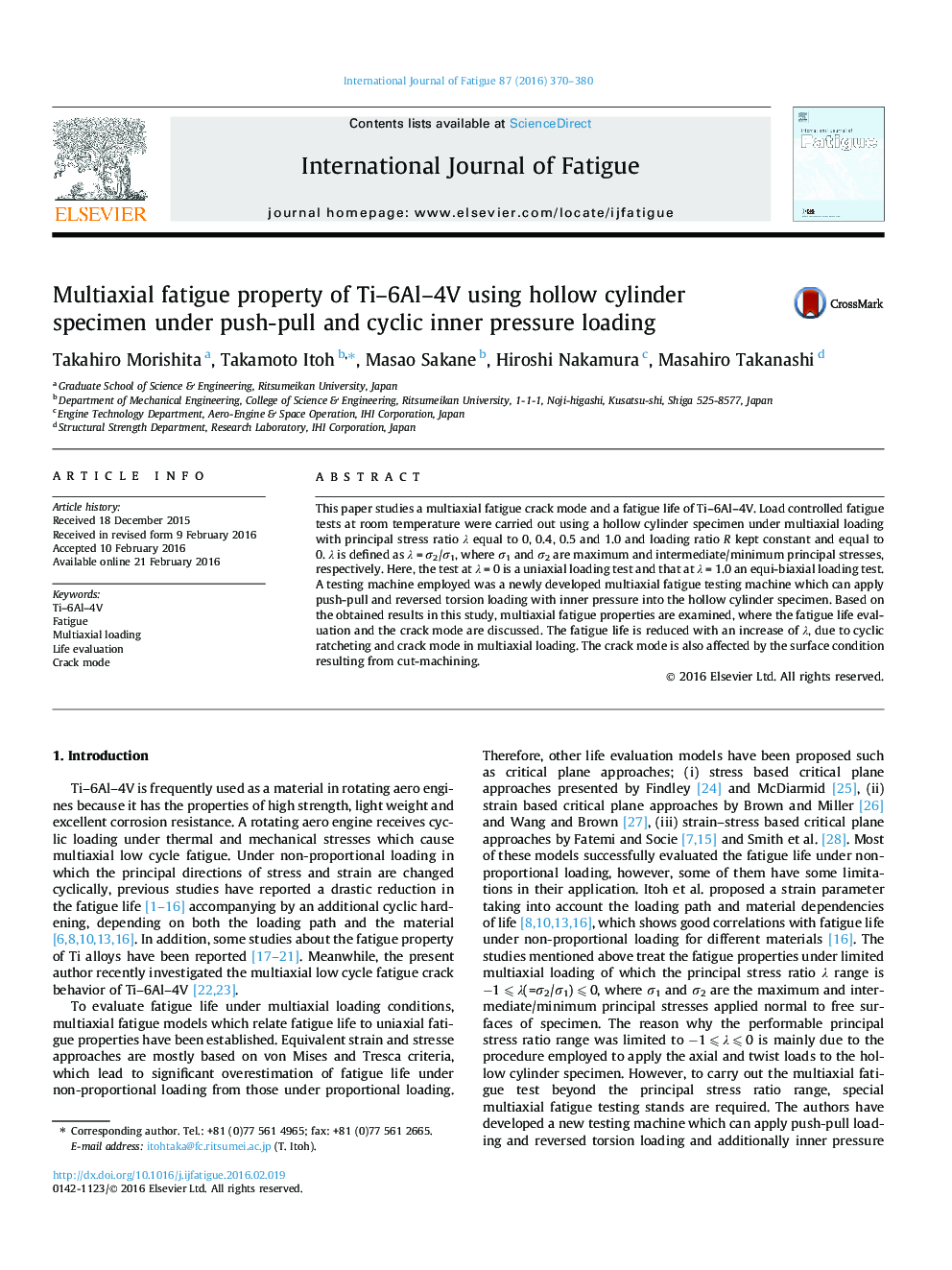| Article ID | Journal | Published Year | Pages | File Type |
|---|---|---|---|---|
| 778104 | International Journal of Fatigue | 2016 | 11 Pages |
•Multiaxial fatigue tests were carried out using a hollow cylinder specimen.•Multiaxial loadings were generated by combining an axial loading and cyclic inner pressure.•Failure life decreased with an increase in principal stress ratio, λ, in 0 ⩽ λ ⩽ 1.•The failure life can be correlated with the equivalent stress based on von Mises.•Crack mode and failure life in biaxial loading depend on specimen surface condition.
This paper studies a multiaxial fatigue crack mode and a fatigue life of Ti–6Al–4V. Load controlled fatigue tests at room temperature were carried out using a hollow cylinder specimen under multiaxial loading with principal stress ratio λ equal to 0, 0.4, 0.5 and 1.0 and loading ratio R kept constant and equal to 0. λ is defined as λ = σ2/σ1, where σ1 and σ2 are maximum and intermediate/minimum principal stresses, respectively. Here, the test at λ = 0 is a uniaxial loading test and that at λ = 1.0 an equi-biaxial loading test. A testing machine employed was a newly developed multiaxial fatigue testing machine which can apply push-pull and reversed torsion loading with inner pressure into the hollow cylinder specimen. Based on the obtained results in this study, multiaxial fatigue properties are examined, where the fatigue life evaluation and the crack mode are discussed. The fatigue life is reduced with an increase of λ, due to cyclic ratcheting and crack mode in multiaxial loading. The crack mode is also affected by the surface condition resulting from cut-machining.
